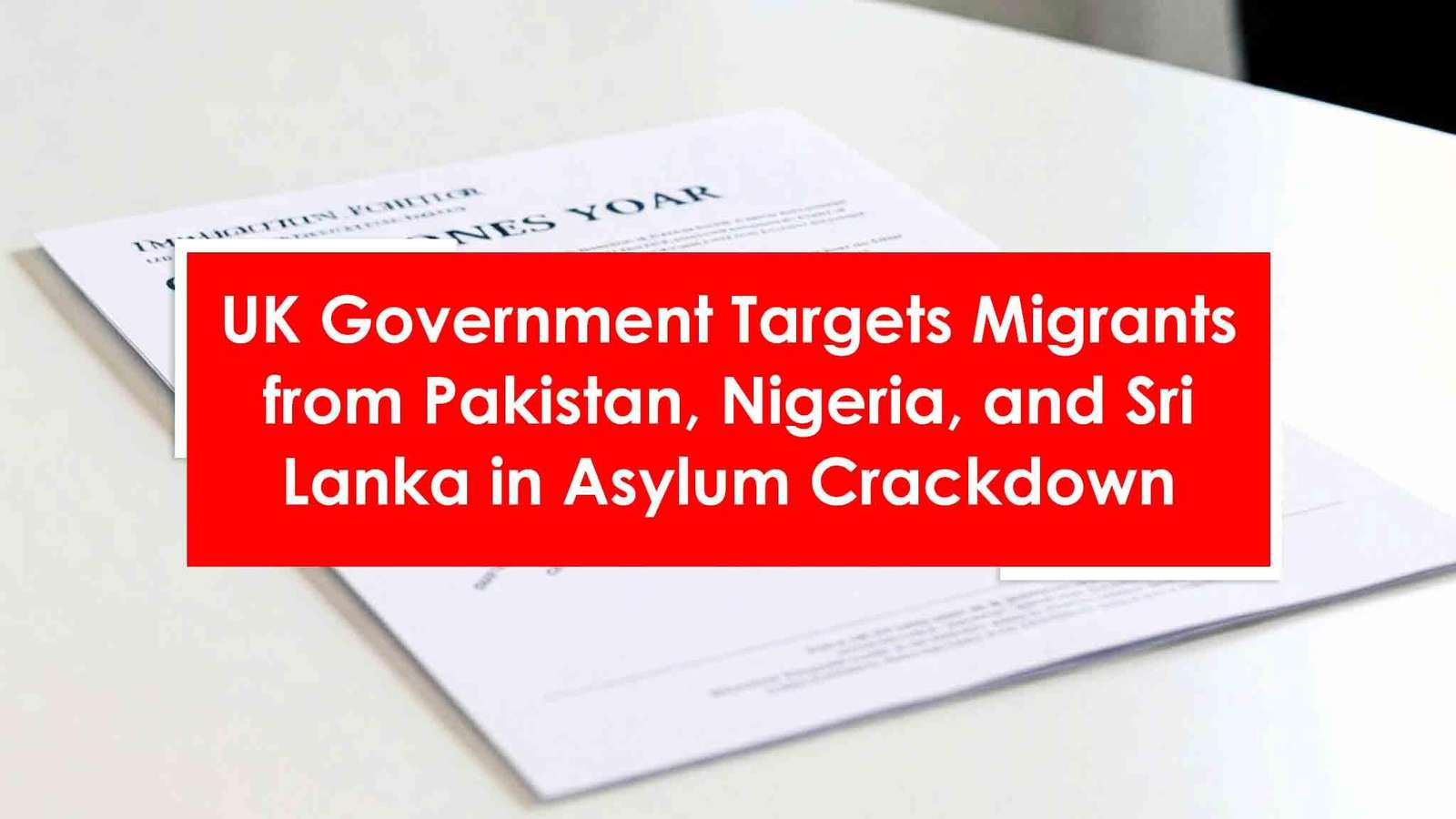The Home Office is reportedly preparing a significant crackdown on asylum claims, specifically targeting migrants from Pakistan, Nigeria, and Sri Lanka. According to a report in The Times, these nationalities are considered by the government to be among the most likely to overstay their visas and subsequently seek asylum. This new strategy will reportedly involve increased scrutiny of work and study visa applications from these countries.
Sources suggest that these plans will be formally announced as part of the upcoming Immigration White Paper, expected next week. This move comes as the government aims to reduce overall net migration figures and address concerns that the current visa system is being exploited as a means to enter the UK without proper authorization.
The timing of this announcement is noteworthy, following closely on the heels of disappointing election results for the ruling party. Many political analysts interpret this as a strategic pivot intended to regain support following the strong performance of Nigel Farage's Reform UK party, which campaigned heavily on stricter immigration controls.
While the government has not yet officially released the details of the White Paper, a Home Office spokesperson stated, "To tackle abuse by foreign nationals who arrive on work and study visas and go on to claim asylum, we are building intelligence on the profile of these individuals to identify them earlier and faster. We keep the visa system under constant review and will where we detect trends, which may undermine our immigration rules, we will not hesitate to take action." The spokesperson added that the upcoming Immigration White Paper will present a "comprehensive plan to restore order to our broken immigration system."
Interestingly, recent Home Office data released last month indicates a substantial decrease in the number of migrants applying for key visa routes into the UK. In the year leading up to March 2025, applications across worker, study, and family visa categories totaled 772,200, a 37% drop compared to the nearly 1.24 million applications in the preceding 12 months. This decline is likely a consequence of changes in legal migration rules implemented earlier in 2024, including restrictions on overseas care workers and students bringing family dependents and a significant increase in the skilled worker salary threshold to £38,700.
Despite the recent drop in overall visa applications, the government's focus on specific nationalities suggests a targeted approach to address perceived vulnerabilities within the system. Labour, the main opposition party, has also stated in its manifesto its commitment to reducing net migration, emphasizing the need for proper control and management of immigration levels to encourage businesses to invest in local training. The upcoming Immigration White Paper will likely provide further clarity on the specific measures the government intends to implement and the anticipated impact on future migration patterns.




_2.jpg)



.svg)



